Transcribed from the 20 April 2019 episode of This is Hell! Radio (Chicago) and printed with permission. Edited for space and readability. Listen to the whole interview:
There’s nothing left to lose, and there’s no reason to compromise in our views anymore. Let’s just get out there and talk about how the world is, and invite a very different conversation about what we do now.
Chuck Mertz: Near-term climate change-caused societal collapse is inevitable and unavoidable. Now, that may sound hopeless, but maybe in that hopelessness we can find a way to adapt to our newly globally-warmed world. Here to help us understand how bad it is and what we can actually do, sustainability scholar Jem Bendell posted the paper “Deep Adaptation: A Map for Navigating Climate Tragedy.”
Welcome to This is Hell!, Jem.
Jem Bendell: Thank you, Chuck, it’s good to be here. Thanks for the invitation.
CM: At your blog, it states, “A research paper concluding that climate-induced collapse is now inevitable was recently rejected by anonymous reviewers of an academic journal. It has been released directly by the professor who wrote it to promote discussion of the necessary deep adaptation to climate chaos.”
You are then quoted saying, “I am releasing this paper immediately, directly, because I can’t wait any longer in exploring how to learn the implications of the social collapse we face.”
Why was your paper rejected?
JB: The two reviewers provided quite detailed feedback, and some of it was really quite useful. But the main argument was that you can’t conclude that societal collapse is inevitable. They made different arguments for why, but the main one that they both shared was that it doesn’t help—it doesn’t lead us anywhere. This is in a sustainability business journal, one that I used to be an original editor with. The whole field is premised on the idea that our economic system is viable, can continue, and we just need to change it somewhat.
I was saying it’s over for this system; we need to have a different conversation. When I submitted it, I already thought it wouldn’t get through. But I had to go through the process anyway, rather than just assume that it would be rejected.
CM: Does your paper promote denialism or hopelessness when it comes to climate change? Do its findings lead to a lack of response to climate change because you argue that it is inevitable?
JB: This is a really important question. Over the last ten years, at conferences and meetings on the topic, people would express their real worries about what’s happening with the climate, but only on the sidelines—it was taboo. You couldn’t actually talk about that, because it might reduce commitment to trying to do something about the problem.
Some people have been criticizing my paper saying it’s just going to demotivate people. What I have seen since late July last year when it came out is the exact opposite. We all have these subconscious hopes about how the future will be, in a way which supports the continuing of normal life. When we realize that the future isn’t actually as we thought, we can enter despair—but that can burn away the fetters on us, and we can look at our lives again and rethink what’s really important.
We’re seeing a huge international rebellion kick off, and many of the people involved at the highest levels came to the rebellion after reading my paper or seeing a presentation I gave. So I’m seeing the opposite of what everyone thought would happen. I’m seeing people really go for it, realizing there’s nothing left to lose, and there’s no reason to compromise in their views anymore: let’s just get out there and talk about how the world is and invite a very different conversation about what we do now.
CM: Is sustainability impossible, and therefore pursuing sustainability is a distraction from what needs to be done to adapt to climate change?
JB: Sustainability in terms of maintaining our current way of life while also maintaining biodiversity and ecosystem integrity and a stable climate? Yes, it’s complete nonsense. The sustainable development goals, for example, that the UN agreed to a few years ago are really quite redundant now.
To the second part of your question, whether it is therefore a distraction—yes, to a degree. We are now facing an emergency, and if we don’t have conversations about how to keep us all fed and watered in situ, and peaceful, and if we don’t find ways of having a quality of life without being so resource-hungry, then we’re going to see a more rapid breaking apart of society.
In that context, we’re not going to do very much to draw down carbon from the atmosphere or cut our emissions. So what I call a deep adaptation agenda—really recognizing that societal collapse is either unfolding or on its way—is going to help with doing something about the climate as well. I don’t see it as against that.
CM: You write, “The politically permissible scientific consensus is that we need to stay beneath two degrees’ warming of global ambient temperatures to avoid dangerous and uncontrollable levels of climate change with impacts such as mass starvation, disease, flooding, storm destruction, forced migration, and war. That figure was agreed to by governments that were dealing with many domestic and international pressures from vested interests, particularly corporations. It is therefore not a figure that many scientists would advise, given that many ecosystems will be lost and many risks created if we approach two degrees’ global ambient warming.”
Why did governments agree to allow temperatures to increase by two degrees, when scientists would advise against it? You mentioned the corporate influence—what does the agreement by governments to allow the two degrees’ rise in temperature reveal to you about the current state of government reaction to climate change?
JB: What’s been really interesting is that my report came out in July last year, and then the Intergovernmental Panel on Climate Change issued a new report in October which admitted that even 1.5 degrees is a disaster. And it also said we have no chance of reaching even that unless we’re doing massive cuts year-on-year starting now, for the next twelve years. Of course, emissions are still going up, and that was six months ago.
But it’s not just the two degree target. It’s what governments have agreed on climate since 1992. It’s really simple. Governments are administering an economic system with some core fundamentals around private property, stock markets, and debt—money that is issued as debt by private banks, which therefore requires economic growth in order for the system to keep working, for the money to be available in the economy, and for us to have jobs.
In the 2018 northern hemisphere summer we had a massive drought across Europe. The UK experienced a twenty-percent production drop—and that wasn’t unusual: many European countries had a similar drop in grain outputs, and also other foods. Germany had a fifty percent decline in their potato output last summer. We can easily see how fragile our agricultural system is.
We have a system that requires a growing impact on the planet as conversion of resources into products and waste. It was never going to work. The fact that it’s been environmental ministers from governments showing up at these climate conferences already tells you that it would never work. The problem is fundamentally one of economics and finance, and the monetary system. In a sense, whatever they agreed, the IPCC would always be irrelevant. It’s not just me that says this. The parts-per-million record of global carbon concentration shows that it’s completely irrelevant. Last year was the biggest leap in carbon emissions in a year, ever.
CM: How fragile, how precarious is our food supply in the face of climate change? Are we facing societal collapse because we are facing climate-induced failure of agriculture and we’ll have to completely change the way we supply food?
JB: Human society is complex, and how everything relates is perhaps beyond our comprehension, so I’m careful when I talk about it. But when I looked at all the vulnerabilities of human society to climate change, the key thing really is food. It’s an old adage that a hungry society is an ungovernable one, and we’re only a certain number of meals away from chaos. We’ve seen that. A key factor among others in the Arab Spring was a sudden spike in food prices.
So yes, our food system is the way that climate chaos can trigger societal collapse. We are a grain-based civilization. About eighty percent of the calories that humans need come from the main grains. And these grains are rain-fed, almost entirely. We do have some irrigation, but it’s mostly rain-fed. So when there’s strange weather, there ends up being a really bad impact on those grains.
In the 2018 northern hemisphere summer we had a massive drought across Europe. The UK experienced a twenty-percent production drop—and that wasn’t unusual: many European countries had a similar drop in grain outputs. And also other foods. Germany had a fifty percent decline in their potato output last summer. We can easily see how our agricultural system is very fragile to the kind of weather destruction we’re seeing.
There are things we can do about that. But from what I can see at the moment they are not being done. That would include looking at all kinds of new ways of making sure we can produce our food without relying on regular rain.
CM: How do you feel about doomsday preppers? Can’t we all just go back to being subsistence farmers and ensure our own access to food?
JB: I completely understand that when people hear the kind of analysis that myself and many others are now sharing, they naturally have a sense of fear, a sense of panic, thinking about how to protect themselves and those they love. “Do I have some stored food? Tin food? Where does my water supply come from? How cohesive is my community? Will we just kill each other?”
I completely understand that. But if you begin to look at what it really means to go off-grid and be self-reliant in food and medicine and water, you end up feeling the need also to be self-reliant in weaponry. If we consider the fact that not everyone else will be self-reliant too, there will be many thousands, if not hundreds of thousands, if not millions of people who will be hungry and angry and desperate. I think it’s actually a form of delusion, and therefore a form of denial, to think that we can run for the hills and feed ourselves in small communities and fend off the enemy. I think we’re all going down together unless we find ways of sustaining each other—to be fed, watered, and to stay in situ.
When I went through this process of panic, fear, grief, and so on, I thought about it. Shall I just go and hide and learn some basic skills and so on? It’s not going to work. I thought I should help raise the alarm instead, and started helping the Extinction Rebellion campaign to prepare and think through what they were doing. We need political action on this.
CM: What does societal collapse mean to you? Does it mean the end of capitalism? Does it mean the end of globalization? Global trade? Do you have a sense of what our society would look like after experiencing climate-induced collapse?
JB: As soon as my paper came out, I discovered that there’s a whole field of thinkers and writers around the subject of collapse, and people who have analyzed the collapse of different civilizations over time, and there’s a community of contemporary-collapse thinkers as well. In France there’s a field called collapsologie. I’m new to this, and I don’t claim to be an expert in how collapse would unfold. I don’t claim to be an expert in food security, for example—that’s a big field, and a field that’s undergoing major transformation right now as people in the field wake up to how bad the climate is and how quickly it’s changing.
So I’m merely guessing when I talk about how it will unfold, but I would say we have far greater sensitivities in our societies than we need to. I’ll give you an example. The Bank of England’s governor has just come out recently and said that climate change poses a potentially catastrophic risk to the financial system. The World Economic Forum, the most elite body of capitalists, said in January that we’re sleepwalking into a climate catastrophe. It’s not just radicals who are talking like this. The idea is seeping into wider society, including among those who manage investment funds and banks and so on. So well ahead of the actual environmental driver of collapse, our financial system could seize up because of panic in the markets. And that’s quite ridiculous: we could still be growing enough food for us all to eat, but we can’t pay for it because our means of exchange has disappeared, because we’ve had a financial collapse over the anticipation of what’s coming.
I would argue that rather than trying to work out how it’s going to unfold, we look at the sensitivities we have that might actually make us collapse sooner than we have to. That’s why I work in alternative payment infrastructure, so we don’t have to rely on just one global banking system for our ability to pay each other and buy our food.
CM: A lot of people say we’ll just have some new technology come about that’s going to save us from all the worst aspects of climate change. How much can technology, as it stands right now (even if those technologies haven’t been scaled up to the size they would need to be), save us from the worst aspects of climate change?
The only things that make sense are things that create as much profit as possible. That’s the system that we’ve designed, and it has turned out to be an omnicidal system. It is killing life on Earth.
JB: There are three aspects to that. One is technology for reducing emissions, then there are technologies for taking carbon out of the atmosphere, and then there are technologies for preparing for the disruption. There are three areas. It’s a massive field to talk about. There’s a fourth, of course, which is geo-engineering.
There’s a lot of nonsense being said about direct air-capture of carbon dioxide, where machines take carbon out of the atmosphere. The thing is, you need to run these machines on renewable energy only, otherwise there’s no point. I looked at current performance and what we would need to make a real difference: we would need them to be deployed at two million times their current capacity. And we need that right now just to stop the amount that we’re adding, not even to bring the global carbon levels down. We would need two million times the capacity of current deployment just to stop increasing parts-per-million of carbon in the atmosphere. So that’s not going to happen.
We’re in a society where we think of technology in terms of electronics and machines. But we need to have agro-ecological approaches in our farming. We need to be re-foresting. These are technologies—they are ways of knowing and ways of doing. We need to be restoring fields of sea grass and seaweed, because they are actually better than forests at capturing carbon.
Still, none of that is good enough. It’s not going to stop catastrophic climate change. Nonetheless, I’m unusual as an environmentalist for arguing for one kind of geo-engineering to be tried right now, which is called “marine cloud brightening.” I think we should do that above the Arctic right now. It’s the refrigerator of the planet. If the Arctic keeps melting the way it does and becomes ice-free, we risk a really rapid jump in temperatures. There’s a simple technology of spraying water into the atmosphere above the Arctic. A lot of the other geo-engineering ideas are very risky, but I think this one needs to be done right now.
There’s also a whole other area of technology around adapting: things like irrigation systems, and also looking at different ways of producing protein. There are lots of interesting kinds of worms, micro-worms that grow on all kinds of organic waste, which could give us our protein. Sorry to say it, but we’ve got to look at everything.
CM: As you were saying, these things are not going to fix the problems of climate change, but they’re going to make it so we can adapt to them better. Why are these ideas not being pursued? Why are they not being implemented massively right now?
I’m concerned that the reason they are not being implemented is because business hasn’t figured out how to profit from it yet.
JB: Sure. That is how it is. Nearly every country on the planet has a form of capitalism, and also has a banking system where a government can only raise revenue through tax or selling debt rather than issuing its own currency and sending it into circulation. We live on a planet that is run in the interest of private banks. We don’t even need to look at corporations—underneath all that is the banking system. Even our governments are trapped within that banking system. It’s because of that that the only things that make sense are the things that create as much profit as possible. That’s the system that we’ve designed, and it has turned out to be an omnicidal system. It is killing life on Earth.
I know that a lot of people—for example Extinction Rebellion—want to be agnostic on the politics of this when they talk about climate and raising awareness. But from my analysis, we have to redesign the fundamentals of our economy. This isn’t going to be done by some smart investors at an investment capital firm in partnership with some sponsorship from governments. We’re going to have to completely rework how business operates.
CM: How much is wider society being kept in the dark on climate change by researchers and practitioners who only write for other researchers and practitioners? Is their lack of knowledge scientists’ fault? Or fossil fuel companies’ fault?
JB: Both. It’s really clear that fossil fuel companies sponsored research to cast doubt on what was basically a scientific consensus in 1987. In 1987 the UN General Assembly adopted the B Report, which said that climate change is happening, we’re causing it, and it’s a problem. It’s only at that point that the fossil fuel industry swung into action to fund people who would cast doubt. Of course, they still do. They spend hundreds of millions worldwide on lobbying against policies that are desperately needed.
So yeah, fossil fuel executives, if you’re listening: How dare you threaten life on Earth? If you’re going to get up and go to work tomorrow, then cause havoc. Otherwise stay at home.
But there’s also a problem with scientists. James Hansen, one of the most famous climate scientists, who brought this to world attention in a presentation before US congress in the eighties, published a paper on what he called “scientific reticence.” There’s a culture in the scientific community of being too cautious about what you claim. That’s also because there’s a value associated with not really having emotions and trying to present your work in a value-neutral way.
There’s a wonderful report called “What Lies Beneath” which analyzes the Intergovernmental Panel on Climate Change and why it has consistently been wrong, never up on what actually happens in the climate. It’s always under-reporting or under-predicting or under-projecting what the climate is going to do. That’s because it’s always trying to seek consensus, and when there isn’t consensus then it leaves something out. For example in 2007, they couldn’t find a consensus on what was happening with the amount of water coming from Antarctica into the ocean, so they just left out the data altogether.
These ways of behaving were acceptable because people weren’t panicking. What we’re seeing in the last twelve months is that people in elite institutions—the UN World Meteorological Association, the IPCC, and other UN agencies—are panicking now too, and that’s why we’re beginning to see much more bold statements coming from those top bodies.
CM: I understand that science strives for objectivity. Journalism strives for objectivity. But journalism realizes that you can never be completely objective. Is that the same kind of situation with science? Are they striving to be objective, knowing that they can’t be? Because everything is political—so isn’t science political as well?
Climate change is an invitation for all of us to recognize the reality that we’re in, and to ask essential questions of ourselves and each other. What is the meaning of life? What is the meaning of our death? How do we wish to live, and how do we wish to die? There’s no getting away from it.
JB: It’s difficult to generalize. I’m a social scientist, and in the social scientific fields over the last decades, yes: we argue that anybody who tries to say their work is value-neutral is actually just allying with current structures of power, and you need to look at the politics and economics of your approach to study. Why have you got the money to do the study in that way? What are your assumptions? What are your values? If you’re hiding all that, then it’s just not quality research.
Within natural sciences like climate science, it’s more difficult. There is this idea of “letting the data speak for itself.” In climate modeling, that can be a problem because there are so many subjective decisions to make about what relationships between variables to include, and to what degree. So there has been a false confidence coming from climate models, even though they say it is just a projection and not a prediction (though of course that’s not how it ends up being used by policymakers. It is used as prediction).
I think we’re going to see something quite different in coming months, where different assumptions about relationships between variables are going to be used in climate models, and they are going to produce extremely scary projections, the kind which had always been discounted in the past because you wouldn’t have wanted to alarm people unnecessarily, or you wouldn’t want to get laughed at or rejected by peer reviewers.
As I said earlier, we’re seeing a big shift. The panic is spreading, and therefore what can be suggested or concluded has changed. Science is a product of our society and therefore is influenced by our society.
CM: Are we in denial about climate change because we are in denial about death? Can we not come to terms with climate change as a society because, as a society and individually, we have not come to terms with our own deaths and the possible deaths of our closest loved ones?
Do you see any chance that we will have a better understanding or better terms with death than we do now?
JB: Absolutely. Because climate change is a reminder of the natural world and therefore it’s a reminder of the real world, which is about life and death. It’s things coming and going. Impermanence and change is central to what life is.
If you live in the city and your experience of life is continual upgrades of tech and cars and the latest flavor in the coffee, whatever it is—there’s a sense, somehow, of things moving forward. That is a deep disconnection from what reality is, which is cycles of life and death. Also, therefore, obviously: we’re not in control. We pretend we are, but we are part of nature. Nature is part of us. We’re not in control of it, and we can’t live forever.
Climate change is an invitation for all of us to recognize the reality that we’re in, and to ask essential questions of ourselves and each other. What is the meaning of life? What is the meaning of our death? How do we wish to live, and how do we wish to die? There’s no getting away from it. It is going to be a philosophical—humanist or spiritual—invitation.
CM: Can we do the deep adaptation that you suggest without reproducing the same effects that we created by industrializing society? Can we do deep adaptation, or even just a Green New Deal, without new technologies whose production contributes to climate change despite, in the long run, having a far smaller carbon footprint?
JB: The reason I call deep adaptation “deep” is to contrast it with the mainstream climate adaptation field, which is very much about how we preserve this way of life, this economic system: more irrigation, higher sea walls, better zoning for land use, that kind of thing. Deep adaptation is premised on the idea that it won’t work and society will collapse. So when I talk about doing things like marine cloud brightening or irrigation systems, I’m talking about buying time and increasing our chances that we can collapse softly, that we won’t make matters worse by going hungry and killing each other.
I’m not saying this gets us out at all. I talk about four R‘s. Resilience is what I’ve mostly talked about so far with you. But there’s also Relinquishment, that’s the second R. What is it that we need to let go of in order to avoid making matters worse? That can be all kinds of things that we take for granted for our pleasure and our way of life.
The third R is Restoration. What is it that we’ve lost in the advance of consumer industrial society? What have we lost that we could bring back? Our whole way of life, for so many of us now, depends on devices and screens and electricity—but there have been ways of having fun for thousands of years. Humans did exist before this way of life. How can we look back to that? Reconnecting to nature is going to be part of it.
And the fourth R I call Reconciliation. Who and what do we need to make peace with in this context? We’re probably going to die, each of us, younger than we had imagined. Nothing’s certain, but it looks probable now. It brings those questions that we typically leave to the moments of, say, palliative care. It brings those questions right now into the present moment. Are we at peace with people we’ve affected through our life? How do we feel about the fact we’re going to die? How can we process that, grieve it, and find a place of calm and joy without ignoring it? And without ignoring that this could be coming sooner than we thought—and also to our loved ones?
The deep adaptation framework is not a technotopia, and it’s not that lighthearted. It’s inviting people to do some deep work with each other about how they want to live through this coming calamity.
CM: Marine life and seashores are going to be devastated by rising sea levels and climate change. But as I have asked guests in the past: are we safe from climate change here on the shores of Lake Michigan? Aren’t we going to get rich when we sell our places to seashore refugees who have fled to Chicago, and then we can cash in and flee even farther north, where we can buy a place someone else has sold to go even farther north?
How does devastation of marine life and seashores effect everyone, not only those living on seashores?
JB: That’s an interesting one there. I see you’ve been having some fun conversations recently about this topic. Chicago talk in bars?
The Canadian environment ministry came out with a study recently saying that Canada is warming at five times the rate of the rest of the planet. I didn’t pay close attention to it; I don’t focus on Canada enough, clearly. But yeah, Canada is not the panacea or the utopia in this context, in that case.
How is devastation of marine life going to affect everyone? The big problem is that fish are a major source of protein. That’s going to become a real problem. Do you feel you’ll be better off in Chicago? As I said earlier, we’re all going to sink or swim together on this. Why do you think that private property or the US dollar will mean anything in a context where there are millions of people leaving the eastern seaboard for the Midwest? That’s ludicrous. In that context, people won’t be paying you rent, they’ll just be taking over your houses. We have to help each other or it’s not going to work out.
CM: Jem, I really appreciate you being on our show this week.
JB: Thanks, Chuck.

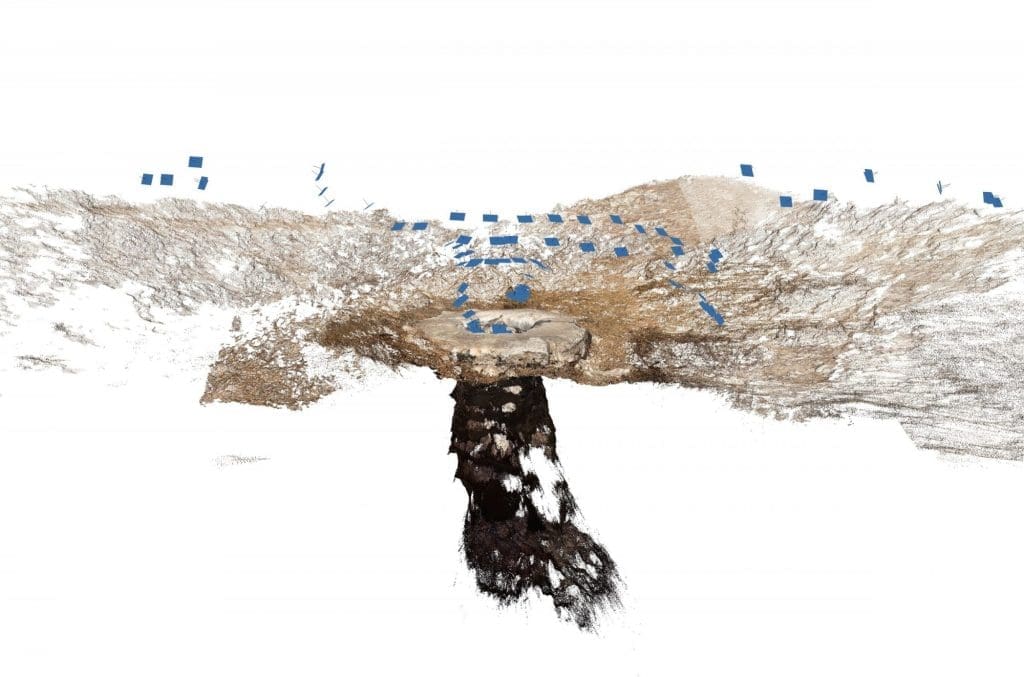
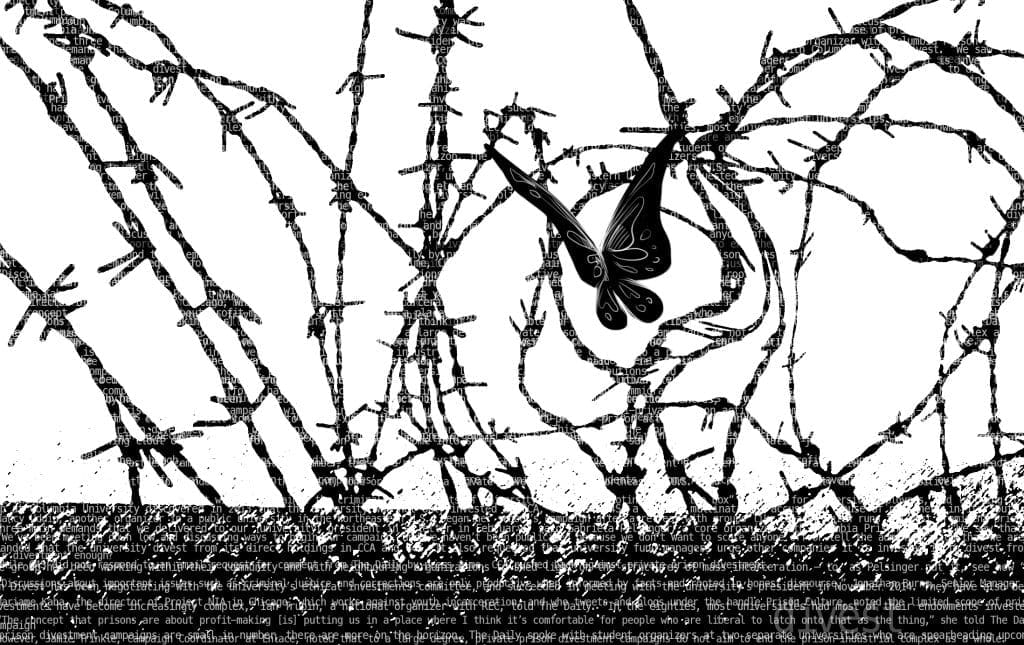
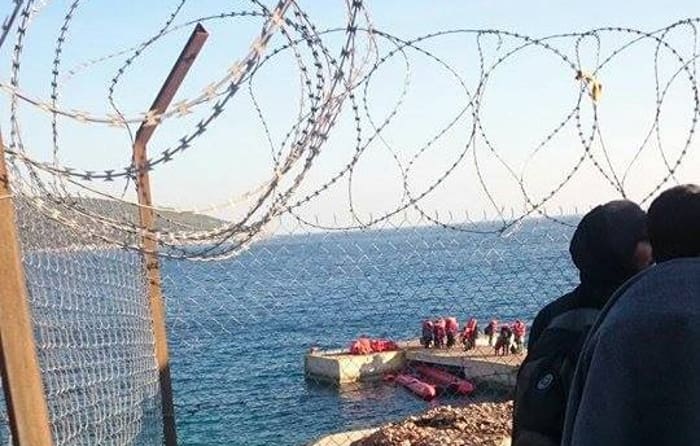
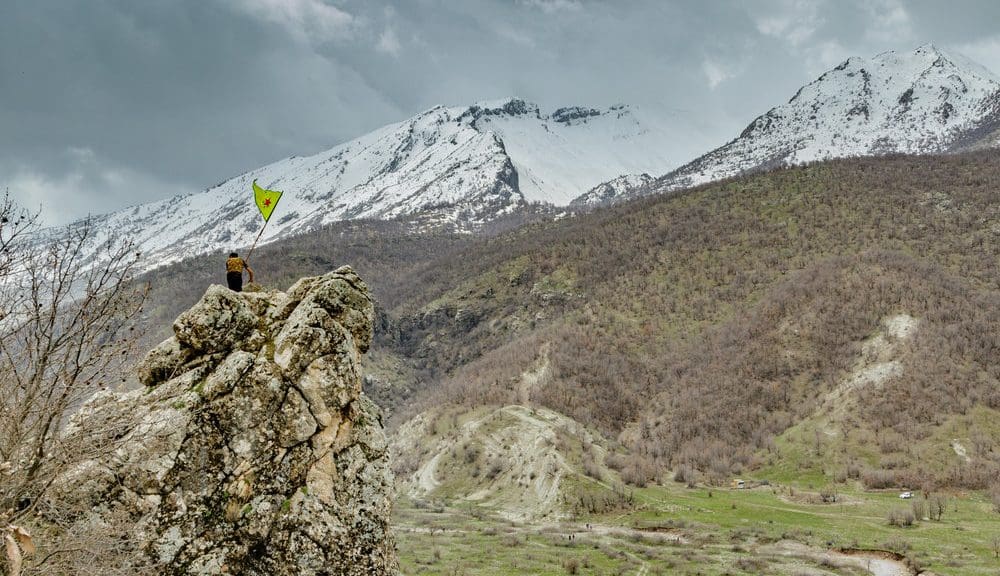
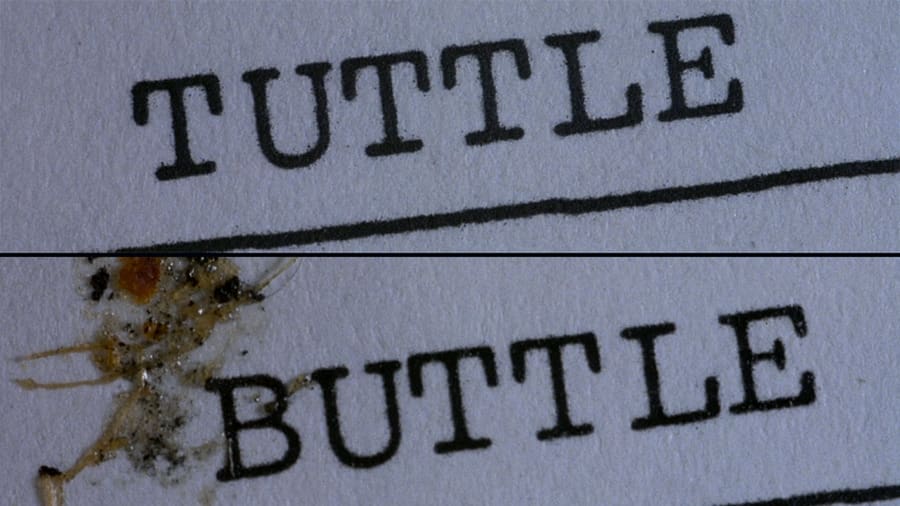
Pingback: Ecosocialism, Extractivism, and Dual Power | aNtiDoTe Zine
Pingback: Fighting Climate Change from Below | aNtiDoTe Zine